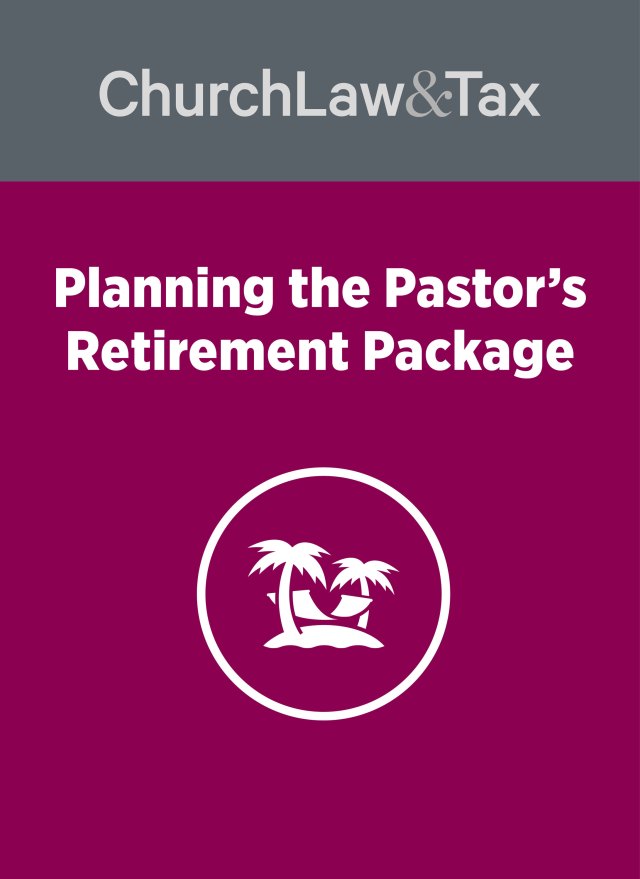Q: One of our church employees has informed us that he considers himself to be exempt from federal taxes, and has asked that we discontinue withholding taxes from his pay. Should we honor his request, or should we continue withholding taxes? Can we be liable if we deny his request?
A: This question was addressed in a recent case. An employee submitted to his employer an amended “Employee’s Withholding Allowance Certificate,” also known as Form W-4, in which he claimed he was exempt from federal tax withholding. At the same time, he sent his employer a letter enclosing “all of the relevant laws regarding his changed status [to being exempt] and his legal demand to stop withholding federal Social Security (since he does not subscribe to government social programs).” The employer discontinued withholding taxes until it received a “lock-in letter” from the IRS. If the IRS determines that an employee does not have enough withholding, it may notify the employer to increase the amount of withholding tax by issuing a lock-in letter that specifies the maximum number of withholding allowances permitted for the employee. The employer will also receive a copy for the employee that identifies the maximum number of withholding exemptions permitted.
After the receipt of a lock-in letter, an employer must disregard any Form W-4 that decreases the amount of withholding. The employee must submit for approval to the IRS any new Form W-4 and a statement supporting the claims made on the Form W-4 that would decrease federal income tax withholding. If, at any time, the employee furnishes a Form W-4 that claims a number of withholding allowances less than the maximum number specified in the lock-in letter, the employer must increase withholding by withholding taxes based on the letter.
A federal court in Pennsylvania dismissed the employee’s lawsuit. It concluded: “Under the Internal Revenue Code, an employer is shielded from liability to an employee for withholding that employee’s taxes. Section 3403 states: ‘The employer shall be liable for the payment of the tax required to be deducted and withheld under this chapter, and shall not be liable to any person for the amount of such payment.’ Courts have repeatedly relied upon this language to hold that an employee may not bring a claim against his employer for withholding taxes from the employee’s pay. . . . An employer cannot be made liable for failing to honor an employee’s W-4 form when it has been directed to do so by the Internal Revenue Service.” Giles v. Volvo Trucks, 2008 WL 509178 (M.D. Pa. 2008).
Q: Our youth pastor will be spending a month with students in El Salvador this summer for a missions trip. He would like to bring his wife and children on the trip, although they will have limited involvement in the missions projects. If the pastor raises support for his family’s expenses, would those be tax-deductible contributions?
A: No, contributions given toward the travel expenses of the youth pastor’s wife and children would not be tax-deductible, because their travel is not primarily for ministry purposes. I address this issue on pages 418-421 in my 2008 Church & Clergy Tax Guide if you need additional information.


